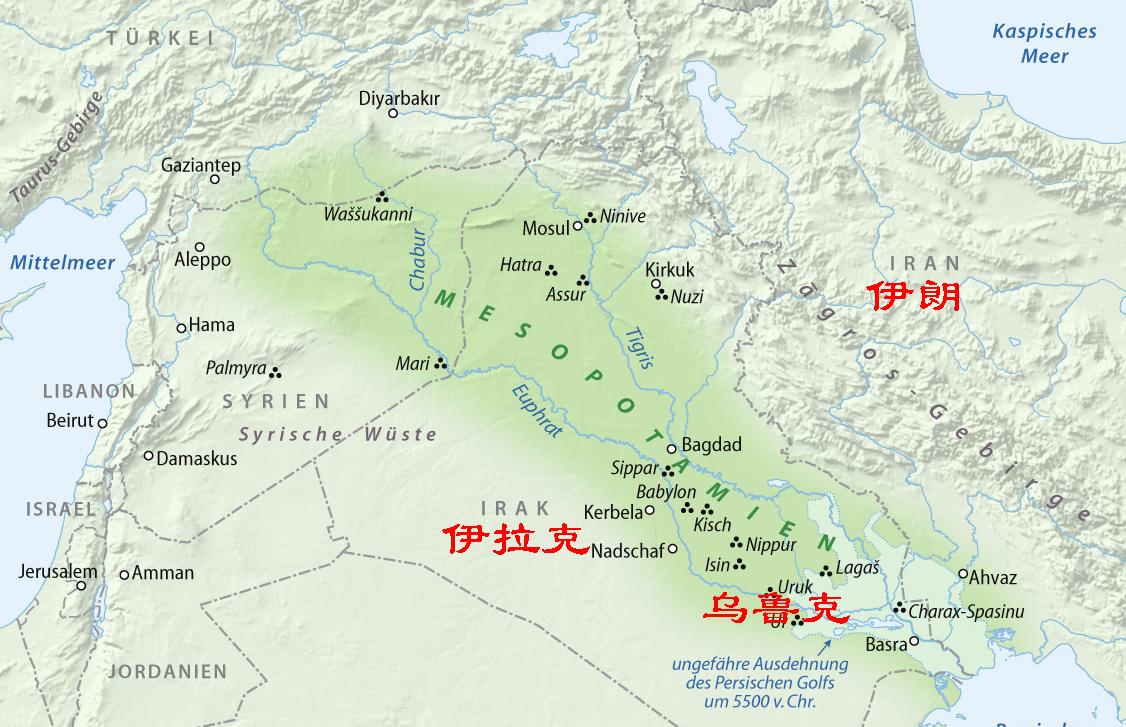When the Yellow Emperor's tribal group fought against the Xuanyou tribal group in zhuolu wilderness, and Namel was fighting a war to unify upper and lower Egypt on the banks of the Nile, the city-states that flourished in the Euphrates and Tigris rivers of the Arabian Peninsula were also engaged in a series of annexation wars, and like China and ancient Egypt, the accounts of the wars in the two rivers during this period still existed in the heroic legends full of romantic colors.

The geographical location of Uruk
About 500 years ago, in the area of the town of Samawa in present-day Muthana Province, southeastern Iraq, a city-state named Uruk flourished, and the ruler of Uruk at this time was named Nmarkar, under whose rule Uruk not only built strong cities and controlled a large population, but also subjugated several small surrounding city-states to Uruk's rule.
Uruk's outward expansion
In addition to Uruk, there is another rich city-state of Arata in the Two Rivers Valley, an area that has not yet been discovered by archaeologists, but in legend, this area is a place rich in gold and precious stones. Such a fertile land, I believe that any powerful ruler will have the idea of taking it into his pocket. Emmelkar was no exception, and the emperor issued an order to the city-state, which was not adjacent to him, asking it to offer gold and stone gems for the construction of the temple, such a physical request was undoubtedly rejected by Arata, and the war had an excuse.
Ruins of the temple in Uruk
The battle was as full of divine power, but from these wild accounts, it can still be seen that Uruk's expedition did not go well. Uruk, after threatening several small city-states adjacent to him to submit to him and open the passage to Arata, ruled out the expeditionary army commanded by the commander Logar Banda, but due to the long distance, the commander fell ill and lost contact with his own troops, fortunately, when Uruk's expeditionary army was about to collapse, the commander appeared on the battlefield and successfully turned the situation around, and the victorious Uruk not only brought back a lot of wealth, but also plundered more valuable craftsmen. Uruk has since entered the so-called golden age. The commander of the expeditionary force, Logar Banda, later became the second ruler of Uruk.
The Battle Information Bureau is back, the style has changed slightly, and I hope you will continue to pay attention